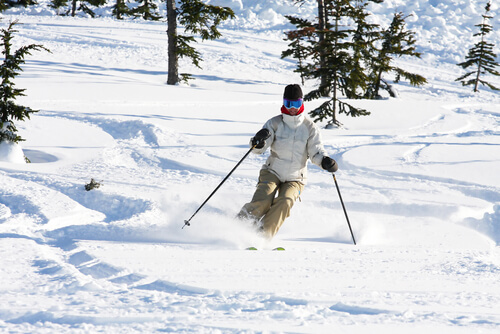Castle v Perisher Blue Pty Limited
When negligence does not translate to compensation.
“This is another sporting injury case in which the defendant has the benefit of the dangerous recreational provisions…”
On 20 November 2020, His Honour Justice Cavanagh of the Supreme Court of NSW found that while a ski instructor was wholly negligent in causing injuries to a plaintiff, the plaintiff’s claim for compensation could not succeed because skiing is a dangerous recreational activity involving obvious risks.
This case is a stark reminder that even in cases where there is negligence, an injured person will not necessarily receive compensation for the damage and loss arising from their injuries. This is so, even if they have in no way contributed to their injuries, like the plaintiff in this case.
The plaintiff, Ms Deborah Castle, was injured on 16 August 2014. Ms Castle and Mr Michael Thoms, a ski instructor for Perisher Blue Pty Ltd, collided while skiing at Perisher Blue.
His Honour waded through competing accounts and concluded that Mr Thoms caused the accident when he turned “around at the place in which he did and at the speed at which he was skiing and in circumstances of just coming out of a rollover, he failed to exercise reasonable care in all of the circumstances.”
Despite this, the provisions of the Civil Liability Act 2002 (NSW) (‘the Act’) mean that Mr Thoms’ negligence is not the only factor in determining whether Ms Castle is entitled to compensation.
Section 5L of the Act says there is no liability for harm suffered as a result of the materialisation of an obvious risk of a dangerous recreational activity. Section 5K defines such an activity as one that involves a significant risk of harm.
Section 5F defines obvious risks. Significant to Ms Castle’s case, a risk can still be obvious even if the probability of it occurring is low. What is required is to consider whether the risk in the circumstances would have been obvious to a reasonable person in the position of the plaintiff. The personal circumstances of the plaintiff are relevant – here, that Ms Castle “was a very confident skier”.
His Honour concluded that skiing is a dangerous recreational activity (an activity involving a significant risk of harm). He also concluded that it would have been obvious to a reasonable person in Ms Castle’s position that another skier might cause a collision, leading to significant injuries.
This case emphasises the importance of thorough analyses of the application of the Act’s provisions. That is, whether, despite there being proven negligence, the activities and risks involved result in the injured person having no rights to compensation.
Secondarily, this case is a reminder of the difficulties that can be created by heavy reliance on the memories of eye witnesses (often contradictory and competing), which naturally fade over time. The value of taking written statements, videos and photographs immediately following an accident, and completing investigations urgently, cannot be overstated. Such evidence can be the difference between the court accepting one version of events over another. His Honour in this case made a specific comment stating that the evidence of the experts was of little use.
If you or anyone you know has been injured in an accident, you may be
entitled to compensation. For more information, and to arrange a free,
no-obligation assessment of your claim, please call Stacks Goudkamp on (02) 8294 7711, or alternatively make an online enquiry.



